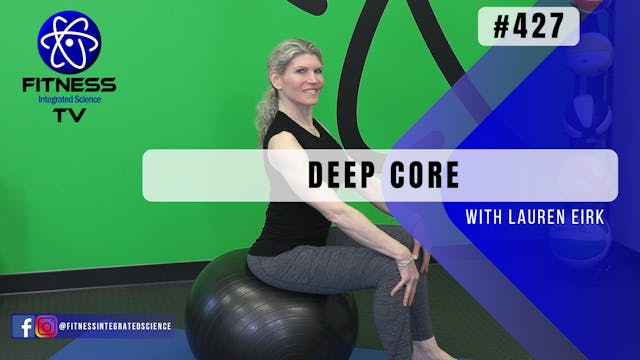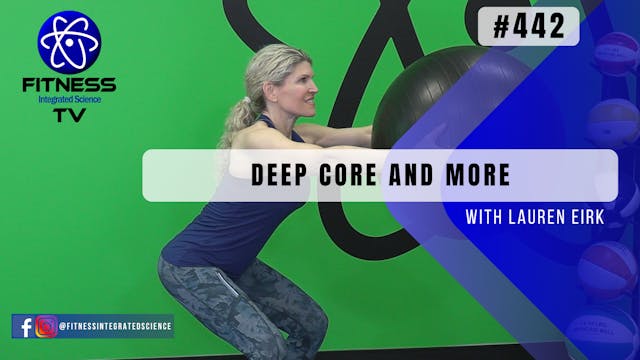Live Event | Pilates Deep Core and Shoulders (60 minutes) with Lauren Eirk
Deep Core
•
1h 10m
This Pilates class will address not only the typical spinal positions that we train for abdominals and spinal erectors, but also for the deep cope muscles. We will address pelvic floor dysfunction, which is the inability to correctly relax and coordinate your pelvic floor muscles. When we strain, it puts pressure on this region. As we age, these muscles can become weak due to childbirth, standing for long periods of time, heavy lifting, straining to defecate, and some sports.
In this video, learn how to subtly engage these muscles on purpose when sitting, laying down, breathing, and exercising. A Pilates ring is used in this video as a resistance tool, but a small ball, pillow, or elastic band can be substituted. The sponge ball will give us a great fulcrum to move around. We will also be targeting the shoulder muscles, as they attach against the rib cage.
Note: Some causes of pelvic floor dysfunction include: Traumatic injuries to the pelvic area (like a car accident), pregnancy, overusing the pelvic muscles that eventually leads to poor muscle coordination, pelvic surgery, being overweight, and aging. Symptoms include: frequently needing to use the bathroom, constipation, straining pain during your bowel movements, leakage, painful urination, and lower back, genital, or rectal pain.
Purchase Products on Amazon:
Yoga Mat: https://amzn.to/2ZDSMrH
Small Pilates Sponge Ball: https://amzn.to/3Sgrr8r
Pilates Ring: https://amzn.to/32neu4Z
Up Next in Deep Core
-
Video 427 | Deep Core (30 minutes) wi...
Pelvic Floor Dysfunction is often classified as urologic, gynecologic, colorectal, and other causes. It affects over 32% of women and 16% of men. The core and the deep core are the target of this therapeutic routine.
In this workout, work the lumbo pelvic-hip complex, which includes deeper mu...
-
Video 442 | Deep Core and More (30 mi...
It is said that 50 percent of people with chronic constipation, low back pain and pelvic pain have pelvic floor dysfunction (PFD) — impaired relaxation and coordination of pelvic floor and abdominal muscles. Intensive pelvic floor retraining exercises is often used to treat non-relaxing pelvic f...
-
Video 459 | Breath Centered Meditatio...
Scientists say that mindfulness practices such as focusing your attention on your own breathing affects "noradrenaline". This is a natural chemical in the brain often referred to as one of the “stress hormones” because when we produce too much, it increases our heart rate and blood pressure, whi...




2 Comments